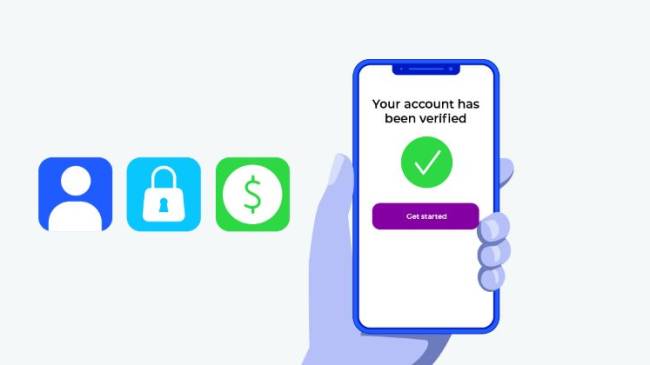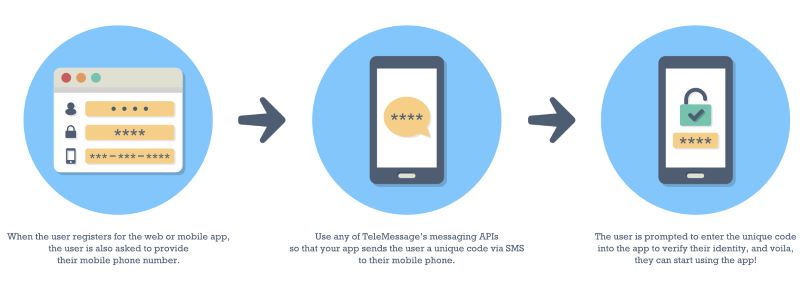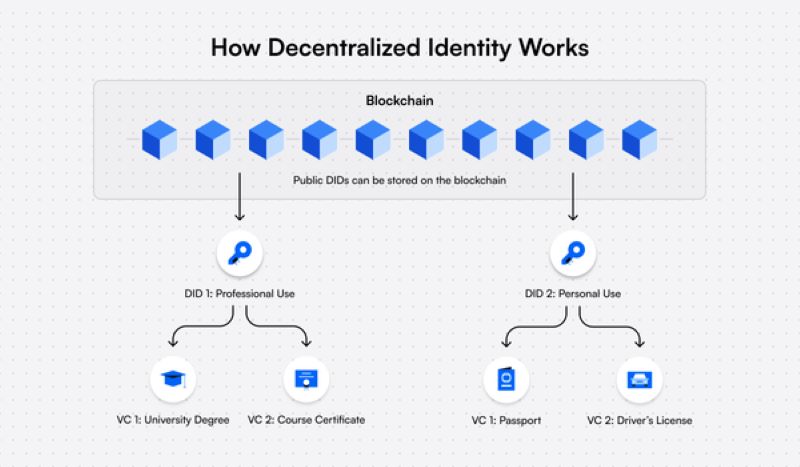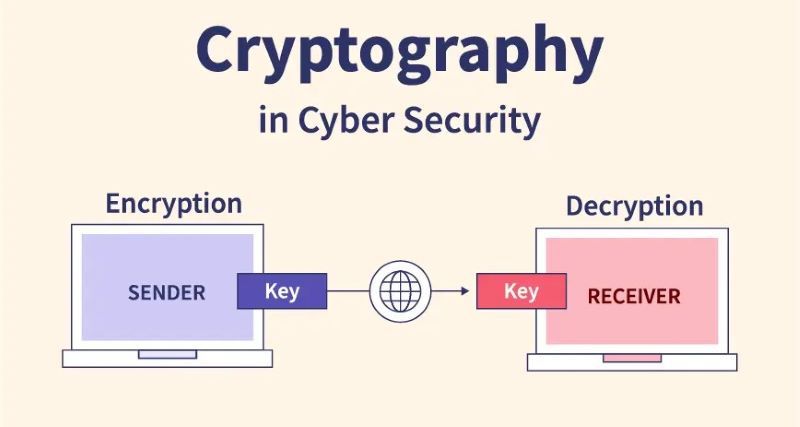Categories: Blockchain
Universal Messages Verification Blockchain: Securing Digital Authenticity
Universal Messages Verification ensures the authenticity and integrity of communications across diverse systems. Utilizing blockchain technology, this process enhances security, trust, and reliability in digital transactions, making it vital for secure data exchange in various industries.
In the digital age, where information spreads at lightning speed, determining the authenticity of messages has become an unprecedented challenge. Fake news, online scams, and increasingly sophisticated cyberattacks threaten our safety and trust in the virtual world. But is there a solution to ensure that what we read, hear, and share is real? The answer lies in a groundbreaking technology: Universal Messages Verification Blockchain (UMV Blockchain). Let's explore how UMV Blockchain is revolutionizing the way we safeguard the authenticity of digital information and building a more trustworthy online environment.
Defining Universal Message Verification (UMV)
Universal messages verification blockchain (UMV) refers to a comprehensive system that verifies the authenticity, integrity, and provenance of digital messages across diverse platforms and communication channels. It aims to combat issues such as misinformation, fake news, spam, and phishing attacks by establishing a reliable verification process.

The Need for universal messages verification blockchain
The digital era has introduced unprecedented connectivity and information exchange. However, this interconnectedness has also amplified the dissemination of misinformation, fake news, and propaganda, making it increasingly difficult to differentiate truth from falsehood. This epidemic of misinformation has wide-ranging consequences, affecting public discourse, elections, and even endangering lives.
In addition to the spread of false information, the absence of reliable message verification mechanisms has exposed numerous security vulnerabilities. Phishing attacks, which trick individuals into divulging sensitive information, have grown more sophisticated, often imitating legitimate sources with alarming accuracy. Spam emails and messages continue to flood inboxes, congesting communication channels and potentially distributing malware or scams.

The demand for dependable communication channels has never been more urgent. In journalism, the ability to authenticate news sources and articles is crucial to uphold public trust and counteract the propagation of fake news. In the financial sector, secure and verifiable communication is essential to safeguard sensitive financial data and prevent fraudulent activities. In healthcare, accurate and reliable information exchange is critical for patient care and safety. Governments also depend on secure communication channels to safeguard national security and uphold public confidence.
How Blockchain Enables Universal Message Verification
Decentralized Verification
Blockchain technology operates on a decentralized network of nodes, where each node maintains a copy of the entire blockchain ledger. This decentralized nature eliminates the need for a central authority to verify messages. Instead of relying on a single entity, blockchain leverages consensus algorithms (like Proof of Work or Proof of Stake) to validate transactions and messages across the network. Decentralization enhances resilience against censorship and manipulation because no single entity has control over the verification process. Messages are verified through a distributed consensus mechanism, ensuring transparency and reliability.

Immutable Records
Blockchain's immutability ensures that once a message is verified and recorded on the blockchain, it becomes part of a permanent and unchangeable record. Each block in the blockchain contains a cryptographic hash of the previous block, creating a chain of blocks that cannot be altered retroactively. This tamper-proof nature of blockchain provides an audit trail where every verified message is timestamped and linked to previous transactions. Any attempt to modify or delete a verified message would require changing all subsequent blocks in the chain, which is computationally impractical and easily detectable by the network.

Cryptographic Security
Blockchain employs cryptographic techniques to secure messages and transactions. Digital signatures, generated using public-key cryptography, authenticate the sender of a message and ensure that the message has not been tampered with during transmission. Hash functions create unique digital fingerprints (hashes) of messages, which are stored on the blockchain. These hashes serve as identifiers and integrity checks, verifying that the content of a message has not changed. By combining digital signatures and hash functions, blockchain enables robust verification of the authenticity and integrity of messages without relying on centralized authorities.
Use cases of universal messages verification blockchain
News and Media
UMV can revolutionize the news and media industry by providing a mechanism to verify the authenticity of news articles and sources. In an era plagued by fake news and misinformation, UMV on the blockchain can enable journalists and news organizations to timestamp their reports, ensuring transparency and credibility. This verification process can help readers distinguish between genuine news and fabricated content, thereby restoring trust in journalistic integrity.
Social Media
Social media platforms face significant challenges in combating misinformation, hate speech, and fraudulent accounts. UMV on the blockchain can be integrated into social media platforms to verify the authenticity of posts, comments, and profiles. By leveraging blockchain's immutable ledger, UMV can enhance content moderation efforts, mitigate the spread of false information, and safeguard user interactions. Users can verify the origin and authenticity of shared content, fostering a more reliable and secure social media environment.

Supply Chain Management
UMV on the blockchain offers transformative applications in supply chain management by ensuring transparency and authenticity throughout the entire supply chain. From raw material sourcing to product distribution, blockchain-based UMV can track each transaction and verify the authenticity of products at every stage. This capability helps to prevent counterfeit goods, enhance traceability, and improve consumer confidence in product quality and origin.
Voting Systems
Transparent and secure voting systems are critical for democratic processes. UMV on the blockchain can revolutionize voting systems by providing a tamper-proof and auditable record of votes cast. Each vote can be securely time stamped and recorded on the blockchain, ensuring the integrity and transparency of election results. Blockchain-based UMV mitigates risks such as voter fraud and manipulation, thereby bolstering confidence in electoral processes.
Security Concerns of UMV Blockchain
While UMV Blockchain promises many benefits, there are also several potential security concerns that need to be considered. Here are some key issues:
- Network Security: Like any blockchain system, UMV Blockchain is vulnerable to cyberattacks. Hackers may attempt to gain control of the nodes in the network or attack the network's infrastructure. These attacks could lead to message tampering, data theft, or disruption of network operations.
- Sybil Attacks: In a Sybil attack, a malicious actor creates multiple fake identities on the UMV Blockchain network. This can allow them to manipulate the consensus algorithm and control the network.
- Software Vulnerabilities: UMV Blockchain relies on complex software, which may contain security vulnerabilities. These vulnerabilities can be exploited by hackers to gain unauthorized access to the network or steal data.
- Privacy: UMV Blockchain stores a permanent record of all verified messages. This can raise privacy concerns, as this data could be used to track individuals' online activities.
- Accessibility: The widespread implementation of UMV Blockchain may face challenges due to high costs and technical requirements. This could lead to a digital divide, where individuals with lower incomes or less technical knowledge cannot access the technology.
Universal messages verification Blockchain is not just a technological solution but a significant advancement in protecting the authenticity of information in the digital era. By harnessing the power of blockchain, UMV Blockchain provides a reliable verification mechanism that helps us combat fake news, ensure data integrity, and build trust in online communications. With the continuous development of blockchain technology, UMV Blockchain promises to usher in a new era of information verification, where truth is safeguarded and disseminated transparently and reliably. In addition, you can follow the U2U Network website to get the latest information about Blockchain.
.png)